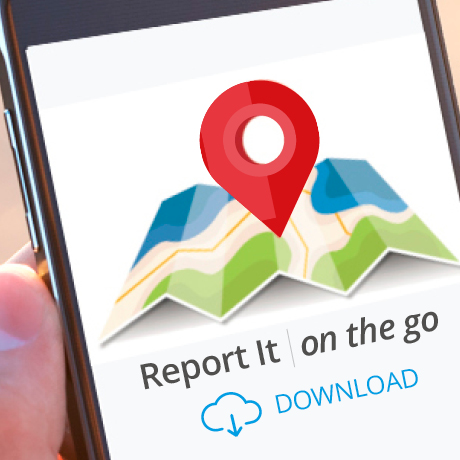
Digital Strategy 2025 - 2029
Our vision for digital
Using digital technology as a catalyst for making Lancashire the best place to live and prosper: delivered through partnership working, designing with users, technical innovation, and better use of data.
Our Digital Strategy
Download the full version of the Digital Strategy. (PDF 5MB)
Our six ambitions are:
Ambition one
Digital partnerships, to develop skills and talent, improve collaboration and support digital inclusion.
Ambition two
Provide a great digital experience for residents, making services accessible and easy-to-use.
Ambition three
Data insights and artificial intelligence to drive innovation, improve decision making and drive efficiencies through service redesign.
Ambition four
Improve our technical foundations, as a building block for growth, innovation.
Ambition five
Digital skills, culture and ways of working, to improve staff confidence and skills in data.
Ambition six
Leveraging digital in social care, with the complexities and increasing levels of demand for services, we must maximise the use of existing and emerging digital innovations in the care sector.
These ambitions have been developed following extensive collaboration with staff and members across the council, engagement with partners and engagement with residents. They reflect the great work that is underway and our aspirations over the next five years.
There are a number of innovative and creative partnerships developing across Lancashire that are bringing organisations together to focus on what is good for the county. We have been a critical part of many of these partnerships; Lancashire 2050, the Lancashire Digital Skills Partnership and the development of Lancashire Cyber Partnership.
These initiatives build on our great work with schools, universities, voluntary organisations, employers, communities and our colleagues across the public sector, and the strength of these relationships leaves us in an excellent position to collaborate and innovate over the next five years.
What success will look like in 5 years

Enhanced Digital Services
Residents will experience smoother, more intuitive digital interactions with the council, having access to services through digital platforms at times that suit our residents; this will reduce the need for phone or in-person visits freeing up staff to help residents that need support and help for our more complex services.
Improved Connectivity
High-speed broadband will be more widely available, especially in rural areas, supporting residents, schools and business.
Innovative Social Care
Technology-enabled care will allow for better monitoring and early intervention, helping residents maintain independence and receive timely support.
Stronger Partnerships
Collaboration with local universities, businesses, and public sector organisations will drive innovation, improve digital skills, reducing the digital inclusion gap and supporting economic growth.
Digital Enabled Workforce
Our workforce will be equipped with digital and data tools and skills that support them to focus on helping residents, using artificial intelligence and automation to reduce time on administrative tasks.
Ambition One

Digital partnerships for the benefit of the county.
Our corporate strategy is rooted in a collaborative ethos that recognises Lancashire County Council as a part of a wider ecosystem of organisations working together with Lancashire 2050 partners to improve lives, communities and businesses across Lancashire.
Collaboration and working with partners are at the heart of our digital strategy.
We will do this in several ways:
Continuing to work with the public sector across Lancashire to share data and design services that benefit our residents – including district and parish/town councils, the NHS, and other central government departments.
Continuing to work with the public sector in Lancashire to share data and design services that benefit our residents – including district councils, the NHS, and other central government departments.
Collaborating with the education sector by supporting schools and colleges on apprenticeships, placements and work experience to guide local young people into meaningful work.
Building partnerships with our world-class universities and major Lancashire employers, to help develop the skills and talent that can contribute to our economy and fill the jobs of the future, with a particular focus on cyber security.
Working with local charities, voluntary organisations and businesses to support local residents with digital inclusion.
Ensuring that the commercial organisations the council works with, buy into our vision for Lancashire and help us to provide good quality services to the people of Lancashire, including contributions to good causes.
Digital inclusion
Being Digital is not about replacing our services with digital only options, it is about encouraging, enabling and supporting those who can use digital tools, or go online, to do so. To support this, we will continue to work with partners, charities and voluntary organisations on digital inclusion approaches. There are many people in Lancashire who do not have the skills, equipment or confidence to use digital technology. We will be working on a range of initiatives to support people by:
- supporting with assisted digital for our own services, and with public sector partners such as HM Courts and Tribunals and UK Visas and Immigration
- supplying devices, in partnership with Good Things Foundation
- distributing SIM cards to address data poverty, as part of the National Databank
- We will take a wider partnership approach across the County to make it easier for residents to access the services they are looking for – whether it’s our services or district council services.
- We will make it easier to safely share data across organisational boundaries so we can provide joined-up services to residents.
- We will explore more innovative ways of analysing and solving our biggest challenges such as public health, social care, economic inactivity and climate-related issues.
- We will get more value from our commercial arrangements.
- We will support people in Lancashire to develop digital and cyber security skills.
- We will improve access to open data, which can spark innovation and value creation in the local economy.
- We will provide support and skills training for residents that have barriers to using digital.
- Collaborating with district councils to share content across our different websites, improve signposting services and information provision through artificial intelligence.
- Working with our technology providers and district councils to look for opportunities to share digital infrastructure and portals.
- Strengthening and broadening our information- sharing agreements with other public sector organisations in Lancashire.
- Creating internships and secondments in partnership with our local universities.
- Exploring innovation.
- Improving how we frame, shape and look at problems, in collaboration with our technology and digital suppliers.
- Investing time and effort to build strong partnerships with suppliers that deliver value-for- money and share our ethos.
- Increasing focus on social value from our technology and digital suppliers.
- Working with schools, colleges, universities and large local employers and supporting the Lancashire Cyber Partnerships and Local Digital Skills Partnership and initiatives such as the Skills Bootcamps lead by the Lancashire Skills and Employment Hub.
- Ramping up our work on open data and sharing non-sensitive datasets from a range of public sector organisations.
- Partnering with local charities, voluntary organisations, communities, learning and training providers, businesses and district councils.
- Continuing to address data and digital poverty through data distribution and device donations.
- Working with public sector partners on assisted digital initiatives.
Ambition Two

We will use existing and new technology to enable people to access advice, support and information about our services and local services provided by others. We will use technology to make services easier to access.
To design this strategy, we engaged with residents across the county to get their opinions of where we can improve our digital services. We have used that feedback as the basis for this ambition and where we need to focus – starting with our website and our digital experience.
At the centre of our definition of digital, is the idea that, where appropriate, digital will be the channel of choice for residents who are able to and want to self-serve. Our research found that many residents want to be able to access services online but have to call our contact centre because our digital services are not intuitive or accessible.
We want residents to experience a smooth, joined-up experience when they engage with public services in Lancashire. We will do the hard work to make it easier for residents, by designing services that put people first, that re-use common capabilities and join up digital, phone and face-to-face contacts. We will also play a role in making it easier to join-up services between organisations.
We are already working on Assisted Digital initiatives that will help those that want to self-serve but need some initial support. We believe that by making it easier for residents to access council services digitally, our staff will have more time to spend with residents that need support for more complex and urgent services.
- We will make it easier for residents to find information and access services online.
- We will improve our management of resident interactions and reduce the need to provide information twice.
- We will make our digital services more accessible, usable and inclusive.
- We will design services around the needs of residents.
- We will make it easier for residents to access help when needed.
- Improving our website; making sure the content is up to date and accessible, improving the search features, and redesigning the information architecture and layout.
- Experimenting with artificial intelligence to look for ways to make it easier to find information online.
- Redesign customer journeys.
- Improving specific digital services that cause frustration for residents such as our website, bus pass information, blue badge applications and reporting highways defects.
- Moving away from traditional form-based products to a modern platform that is more accessible and intuitive.
- Introduce a central digital platform to maintain customer records and reduce inconsistency across our different digital portals.
- Providing up-to-date communication to keep residents better informed (eg. photo of completed road repairs)
- Improving the accessibility of our website.
- Ensuring our content is simple, accessible and easy to understand.
- Supporting staff to understand what good digital service design looks like, to ensure the end-to- end customer journey provides a good experience for residents.
- Embedding accessibility practices and multi- language support.
- Researching and testing new solutions with residents when we design new digital services.
- Offering clear digital and non-digital routes to access help and support when needed.
Ambition Three

Drive innovation from data insights and artificial intelligence.
Data management
Over the next five years we will improve our data management processes, practices and ways of working across the organisation. We will produce a data strategy, outlining the culture, architecture, governance and skills we need to unlock the power of data and derive more value from the rich datasets we hold.
This will include evaluating our model for provisioning data to services across the council. One of the approaches we will look to introduce is a new innovative way to deploy data, where services can access centrally-curated datasets that give insight into service performance. This will help improve reliability, accuracy, availability and quality of data.
This will align to our work to capitalise on internal process automation, to drive through service efficiencies, we will redesign services and business processes so that we are designing with data in mind. It will also align with our efforts to upskill and train staff in digital and data, where we are building out our data academy to support colleagues across the council. This will have a heavy focus on data culture, so that our staff have the confidence to collect, share, and utilise data effectively.
Artificial Intelligence (AI)
We want to use emerging technologies such as AI to find creative and innovative ways to improve and redesign services. We are already exploring using artificially intelligent and automation technologies to improve service delivery to our residents.
We are starting to realise benefits from AI by improving residents experience, making it easier to find information, resolve queries and increasing access to services. They are also using AI to save time by making processes more efficient.
We have specific use cases we want to explore. We will run small, experimental projects to test their viability, and scale them up if they are beneficial. We will also introduce measures to ensure this is done in a transparent and ethical way. Throughout the duration of this digital strategy we expect to see real benefits from new technology, and we will develop a culture of responsible innovation to help us find creative and sustainable ways to improve services.
- We will set out a clear vision for how we will leverage our data assets, tools and skills to improve our services
- We will achieve a clearer view of children and family data to inform better decision making
- We will improve our internal data culture and practice by supporting our people to improve their data skills and confidence
- We will generate insights that help us predict trends and act proactively
- We will use real time data and predictive modelling to improve the flow of private and public transport around Lancashire
- We will develop a responsible approach to AI and advanced analytics so that we can benefit from these technologies in sustainable and ethical way
- We will explore innovative models for delivering services that improve processes and support a better residents experience.
- Make it easier for staff to collate and generate content.
- Producing a new strategy which outlines how we will collect, transform, store, manage and use.
- Using our Master Data Management solution to join up our children and family data.
- Focussing on the future as well as the here and now, through predictive analytics.
- Introducing clearer governance for cleansing, processing and managing This will support more informed decision making when it comes to creating better services and outcomes for our residents.
- Building on our data.
- Educating staff on how data can be used to make decisions and improve services.
- Educating staff on the importance of data quality as a foundation for better insights, decision making and productivity.
- Identifying and taking opportunities to use data science and predictive AI methodologies.
- Securing grant funding to deliver our Future Mobility Platform programme. This will enable us to combine our data with other real time data sources and use predictive modelling to inform changes to traffic flow.
- Exploring partnership with our local universities to assure our approach to data ethics and low- carbon data centre sustainability.
- Establishing guidance on AI and governance to support its innovative uses in a safe way.
- Experimenting with generative AI across a number of council services through proof of concepts.
- Ensuring a key focus on process excellence, automation and generative AI is built into digital and change methodologies.
- Develop a business case for implementing generative AI across key services.
- Rolling out Cognitive Search Copilot and support with prompt engineering and appropriate training for staff.
Ambition Four

Technical foundations as a building block for innovation and transformation.
Key to our digital transformation is having the right technical foundations. Within the council that means having the architecture that enables us to design and build services that meet the needs of our residents and our staff. Externally, it means providing the physical infrastructure across the county to help businesses and people thrive.
Physical infrastructure across the county
Part of that is the council’s investment in public wi-fi and digital infrastructure across the county. From our previous digital strategy, we have:
- rolled out network infrastructure across the county to get more people, businesses and schools connected to superfast broadband.
- introduced the Gov Roam network, to make it easier for other public sector bodies to work securely and co-locate.
Over the next five years we will be more connected in the way we use our infrastructure assets internally, reducing the duplication of network infrastructure.
We will share more proactively with public sector partners to allow them to benefit from our investments and save money for the taxpayer.
Using the returns on our original investment, and in conjunction with Government led programmes we will continue to prioritise access to broadband for our hardest-to-reach communities. We will also continue to support local businesses to access the broadband connectivity and skills that will support their growth.
We will continue to use modern technology which improves the day-to-day lives of our residents. One way we are doing this is focusing on Intelligent Mobility to reduce road congestion, improve air quality and improve journey times when travelling around Lancashire.
This involves taking advantage of innovative solutions in highways and streets assets that enable us to make adjustments to traffic lights and traffic flow. We will look for funding streams from central government to further invest in state-of-the-art data intelligence and machine learning tools.
Technical architecture and governance
There are lots of digital tools and systems that we rely upon to deliver our services. Over the years we have invested in technology to meet specific needs or to deliver individual projects. Managing legacy infrastructure and applications is one of the biggest blockers to digital transformation across the public sector. The associated management and maintenance cost, security risk and architectural complexity can make it difficult and risky to make significant changes to services.
We currently have a large amount of applications for managing services. Some of these are industry-leading, others are legacy or bespoke applications that are difficult to support and maintain. We will rationalise around our core applications, aiming for greater re-use and interoperability, this will be accompanied by a move towards Software as a Service and cloud-hosted applications. We will strengthen our architectural governance to ensure consistency and alignment across the council with our systems.
We will improve our residents experience of interacting with the council through a digital platform that underpins our interactions, whether that is through telephone, digital or face-to-face communication. This will allow us to provide a consistent experience to residents, so they do not have to repeat information or feel as though they’re going round in circles. We currently have many disparate forms, portals and applications that are used to capture customer data. Over the next five years these will be streamlined and rationalised to provide a better quality service to our residents. As we change our digital and technical architecture, we will also be investing in our technical and digital teams to develop the skills we need for the future. This will help us remain up to date and also help us leverage modern technologies.
- We will support more residents, schools and businesses to gain access to high-speed broadband.
- We will share more technology assets with partners to ensure cost - effectiveness for our residents.
- We will strengthen our technical governance to ensure that our technology decisions best support the needs of our staff and residents.
- We will reduce the duplication of capabilities in our technology to simplify the digital journey for our residents.
- We will introduce technical solutions that enable better end-to-end customer journeys and consistency of experience.
- We will leverage our street and road assets to support better traffic flow across the county.
- Continuing to work with commercial partners to improve and introduce broadband for small to medium businesses, schools and our residents, particularly in rural areas.
- Sharing our technology assets and networks with other public sector and commercial organisations where it makes sense to do so.
- Making sure the right building blocks are in place to be able to design, build and deliver technical solutions for our staff and residents.
- Moving away from suppliers that do not share our values or act as good partners.
- Re-using components and design patterns across applications wherever appropriate.
- Reducing our applications and using our core platforms where possible.
- Removing old technologies that create a difficult customer journey and an increased internal
- Introducing enterprise solutions for common capabilities such as direct debits, payments, digital forms and asset management.
- Increased interoperability between key systems through adoption of technical standards.
- Introducing single sign-on capabilities for residents.
- Introducing a Customer Relationship Management system to underpin and support our interactions with residents.
- Continue to secure grant funding to invest in intelligent assets which will provide critical data and functionality to our Future Mobility.
Ambition Five

Digital skills, culture and ways of working
Underpinning our ambitions for digital is the way we work as one team, putting residents at the heart of everything we do. When we design new services, we will make sure residents are at the forefront of shaping our digital services.
We want to be inherently user-focused and collaborative in how we deliver digital services to residents, and we want to provide the support to staff and members within the council to help them build confidence and skills in digital and data.
We’re investing in design and user research skills to help ensure that where appropriate, the digital work we deliver is co-designed with partners and residents. This will make sure that we do the hard work to make services easy to use and accessible to residents, rather than designing services in a way that is easier for us.
Over the next five years we will advocate and promote agile delivery, design with users, and stress the value of multi-disciplinary teams and working in the open. This will help with the culture change to drive a more iterative, collaborative and transparent approach to digital that is not just the responsibility of the digital function.
Over the last period of the digital strategy, we have established a digital champions network across the council, to help share good practice and support colleagues to adopt digital ways of working. We will continue to support and build this network, so they are equipped and empowered to help promote digital across the council.
We will launch a digital skills academy, helping us to provide our colleagues with the support and training they need to use our systems and provide excellent digital services to residents.
- We will train our staff in agile delivery methods so we can deliver digital change faster.
- We will make it easier for our staff to find and use corporate information.
- We will design services around residents needs.
- We will improve collaboration across different teams when designing digital services.
- We will increase digital skills and confidence amongst all staff.
- We will provide councillors with the digital tools they need to be able to effectively represent their constituents.
- Coaching and awareness raising.
- Show and tells demonstrating our good work and what good digital delivery looks like.
- Grow and build on our Digital Champions network to advocate new approaches.
- Reimagining how we use our corporate intranet and ensuring content is clear and useful.
- Introducing new simple search facilities and "how to" approaches that supports the needs of our workforce.
- Improve access to our internal IT support.
- Testing more services and digital solutions with residents as we build them, adopting approaches from central governments digital service.
- Creating a mechanism to get ongoing feedback from residents on our digital services, so we can improve iteratively.
- Increasing our awareness and understanding around accessibility in design.
- Set up a mechanism to harness the potential of automation to drive efficiency and reduce repetitive manual tasks
- Introducing a Digital Skills Academy that offers different learning options to address staff and organisational needs and supports a learning culture.
- Supporting and developing our digital champions network.
- Providing technical skills development for digital, data and technology professionals.
- Ensuring technology, systems and data available to councillors is as effective and user friendly as possible.
- Providing training for councillors on how to use the latest capabilities (such as data and AI) to support them in supporting constituents.
Ambition Six

Leveraging digital in social care
Many of our ambitions for the digital strategy cover all of our services but given the complexities and increasing levels of demand for our social care services, we have targeted activities and ambitions for how we can use digital to go even further in how we plan, manage and deliver social care
services over the next 5 years. Our work in this area ranges from fixing fundamental challenges and supporting our workforce, to utilising tech-enabled care and virtual monitoring.
We are upskilling our workforce to help them use technology more effectively, so that they can focus more time on delivering care to residents rather than performing administrative functions. We’re looking at voice-technology that can transcribe conversations so that social workers can focus on the person rather than the technology.
Within Social Care we have a programme of activity to improve and automate processes, and to ensure that how we work is better aligned to how our technology systems are designed.
We have bold ambitions within the social care sector, with the aspiration to be the leading council for tech-enabled care. We can use technology solutions to monitor things like hydration, medication, fall detection.
This will help give early indicators of when a vulnerable person may need support, helping more preventative delivery approaches. It can also empower residents to be independent for longer.
On a system level, we can be more targeted with our interventions by using data and AI to predict which residents will need support. Early intervention can reduce trauma for individuals and can be significantly more cost-effective to the taxpayer.
- We will support care workers to get the most out of technology.
- We will increase the number of innovation projects we run in social care.
- We will improve residents’ self- sufficiency and agency in a safe and controlled way.
- We will make it easier to engage with our social care services online.
- We will make it easier to engage with our social care services online. We will ensure there are robust information sharing mechanisms between partners and provider.
- Working with our care workers to ensure they have the right technology and systems for their needs.
- Improving support and training for care workers.
- Reducing paper forms for social care referrals and increase self-service online for assessments.
- Focusing the latest innovations into care first, such as the use of AI and Automation.
- Bidding for funding sources that incentivise technical innovation in care.
- Using technology-enabled care and actionable insights to support vulnerable residents.
- Building on monitoring solutions that help to manage risk and trigger preventative action when needed.
- Exploring using a digital, virtual wallet to enable residents to procure care service.
- Improving our digital referral process.
- Introduce a service directory to help people find our services and support prevention in our
- Working with providers to ensure understanding of good data and data sharing.